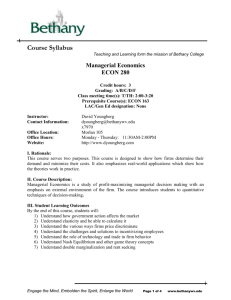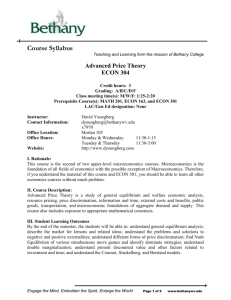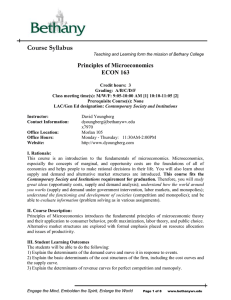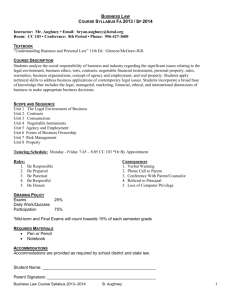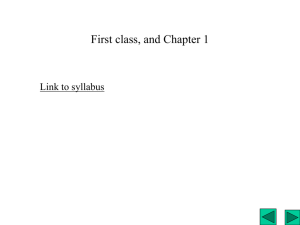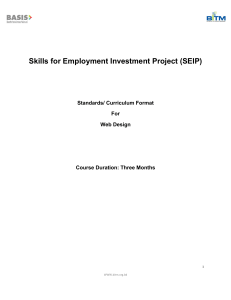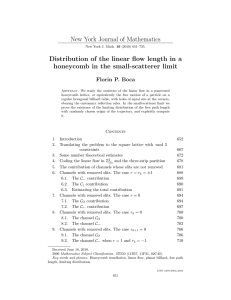Syllabus - David Youngberg
advertisement
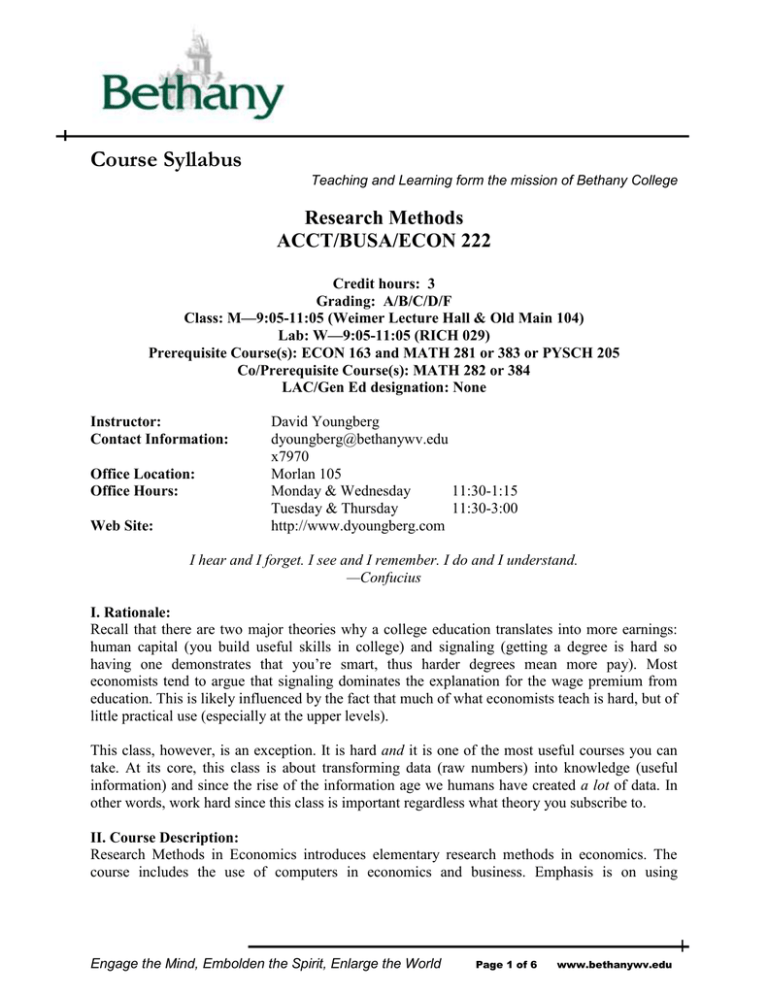
Course Syllabus Teaching and Learning form the mission of Bethany College Research Methods ACCT/BUSA/ECON 222 Credit hours: 3 Grading: A/B/C/D/F Class: M—9:05-11:05 (Weimer Lecture Hall & Old Main 104) Lab: W—9:05-11:05 (RICH 029) Prerequisite Course(s): ECON 163 and MATH 281 or 383 or PYSCH 205 Co/Prerequisite Course(s): MATH 282 or 384 LAC/Gen Ed designation: None Instructor: Contact Information: Office Location: Office Hours: Web Site: David Youngberg dyoungberg@bethanywv.edu x7970 Morlan 105 Monday & Wednesday 11:30-1:15 Tuesday & Thursday 11:30-3:00 http://www.dyoungberg.com I hear and I forget. I see and I remember. I do and I understand. —Confucius I. Rationale: Recall that there are two major theories why a college education translates into more earnings: human capital (you build useful skills in college) and signaling (getting a degree is hard so having one demonstrates that you’re smart, thus harder degrees mean more pay). Most economists tend to argue that signaling dominates the explanation for the wage premium from education. This is likely influenced by the fact that much of what economists teach is hard, but of little practical use (especially at the upper levels). This class, however, is an exception. It is hard and it is one of the most useful courses you can take. At its core, this class is about transforming data (raw numbers) into knowledge (useful information) and since the rise of the information age we humans have created a lot of data. In other words, work hard since this class is important regardless what theory you subscribe to. II. Course Description: Research Methods in Economics introduces elementary research methods in economics. The course includes the use of computers in economics and business. Emphasis is on using Engage the Mind, Embolden the Spirit, Enlarge the World Page 1 of 6 www.bethanywv.edu Course Syllabus Teaching and Learning form the mission of Bethany College spreadsheets to prepare quantitative research projects in economics. The course also covers writing quantitative reports in economics. III. Student Learning Outcomes By the end of the semester, the students will be able to: Run and interpret regressions, calculate Bayesian probabilities, understand ethical constraints for research, employ Microsoft Excel to analyze and present data. IV. Format and Procedures: This class is composed of standard lectures followed by two sections of labs on the following days. The lab is based around computer work with Excel, involving both instruction and student work. V. My Assumptions: I assume you have a basic curiosity about the world around you. I assume you remember the material from this course’s prerequisites. I assume you will do the indicated readings. VI. Course Requirements: Late Work Policy Assignments will not be accepted after the answers have been posted on the website. If you turn in an assignment late but before answers are posted, you will get a -10 modifier on your assignment per day late. Since all exam dates are listed here, you will be expected to attend. Failure of attendance results in a zero for the exam. Exceptions will only be made in extreme circumstances (such as a death in the family) and in those cases written proof (such as a death certificate) must be presented. Course readings There are two books required for this course: Business Research Methods by Donald Cooper and Pamela S. Schindler, McGraw-Hill/Irwin, Eleventh edition; and Basic Statistics Using Excel 2007 for the Use with Statistical Techniques in Business & Economics, 14th edition, prepared by Ronald Merchant, Renee Goffinet-Meenach, and Virginia Koehler, McGraw-Hill/Irwin. Engage the Mind, Embolden the Spirit, Enlarge the World Page 2 of 6 www.bethanywv.edu Course Syllabus Teaching and Learning form the mission of Bethany College VII. Grading, Evaluation and Assessment Procedures, including Grading Scale: Weighting of Assignments Assignment Exams Paper proposal Descriptive Statistics First Draft Final Draft Participation Lab Homework Points or Percentage 15% each, lowest is 10% (40% total) 5% 5% 10% 20% 10% 0.75% each, two are 0.5% (10% total) Lab. This course meets once a week for a normal lecture and once a week for. These labs are required. If you cannot attend the lab, you may download the lab assignment from the website to complete the assignment. Each assignment is due at 3 PM Friday. (Because a conference, I will need Lab 3 by Thursday at 3 PM instead of Friday.) You need to print out your assignment—do not e-mail it to me since I need something physical to hand back to you—and you can slide it under my office door when you are done. I will post the answer key for the lab online. Two lab times are set aside to work on your paper, one the Wednesday before your first draft is due and one the Wednesday before your final draft is due. These labs count as lab homework but only require that you attend and work on your project to get full credit (they are the two labs worth 0.5% of the grade rather than 0.75%). Exams. The three exams will comprise of short answer, true/false and justify, and multiple choice and they will closely emulate the labs. Since all exam dates are listed here, you will be expected to attend. Failure of attendance results in a zero for the exam. Exceptions will only be made in extreme circumstances (such as a death in the family) and in those cases written proof (such as a death certificate) must be presented. Paper. You will write a short research paper over the course of this semester. The paper will make an argument, using empirical data to support that argument. A regression and/or ANOVA analysis is required. The assignment has four parts: Proposal. This is a one-paragraph summary of the question you wish to explore. Some examples include causes of crime, movements in stock prices, poverty, or the impact of some legislation, or hospital policy. Regardless of what you choose, you should reference some data that you found which you can employ and how you might employ it. For Engage the Mind, Embolden the Spirit, Enlarge the World Page 3 of 6 www.bethanywv.edu Course Syllabus Teaching and Learning form the mission of Bethany College example, you might link to World Bank data and note that you can see what the relationship is between education levels and a country’s GDP. Using different variable and different combinations, you should come up with several possibilities that make logical sense. (Just don’t take random different variables and shove them together.) Descriptive Statistics. Using the different variables you will use, provide the descriptive statistics. You should include the following information for each variable: number of observations, arithmetic mean, standard deviation, the minimum, and the maximum. Make sure to put the information into a table (label column 1 “Variable”, column 2 “Observations,” etc). First Draft. By now, your question should have turned into an argument. Instead of asking “What causes crime?” you should be arguing “X and Y cause crime.” For your first draft you will make your argument. Be sure to: o Discuss why your argument is worth making o Explain why you think this causation exists o Include references and arguments from other sources, properly cited, of course o Include descriptive statistic, as above o Support your argument with a regression and/or ANOVA, including implications (“my regression suggests that for every additional year of school, criminal activity falls by X”). Also include a table for the output of your regression. o Discuss any weaknesses in your approach. For example, you might find that low levels of education lead to high crime rates. Does that mean if you educate criminals they’d go straight (because their earnings potential in legal areas of employment have gone up), or does that mean that certain personalities are drawn to the criminal world and such personalities would not handle school well, or does that mean that high crime rates create an environment which makes it difficult to get a good education? Solving such complications is beyond the scope of this course though it’s important that you discuss them. Note that “first draft” does not mean “sloppy draft.” Check your spelling and grammar. Make it well organized. Proofread. This paper should be 7-10 pages long, including tables (but not including graphical depictions of data). That minimum page number will not be strictly enforced (if you can get the job done in six pages, that’s fantastic), but the maximum will be. Good writing is tight writing. Final Draft. I will provide feedback on your draft as soon as I can. Otherwise, the criteria from the rough draft are the same, but expectations are higher. Your final draft should be no longer than seven pages, including tables (but not including graphical depictions of Engage the Mind, Embolden the Spirit, Enlarge the World Page 4 of 6 www.bethanywv.edu Course Syllabus Teaching and Learning form the mission of Bethany College data). A really great paper will incorporate information we’ve covered since you submitted your rough draft. Seniors taking comprehensive exams stop taking this class two weeks before the class is over. Your final draft is due when everyone else’s first draft is due. You will also not take the last lab. Your grade will be reweighed accordingly. Participation. I’m a strong believer that people learn best if they speak up. It’s a good rule not just for learning but for life in general. However because there’s a lot of material to cover, we cannot always have an in depth class discussion. Thus the expectations for participation reflect that—a substantive comment or question once a week will fulfill the requirement just fine. Grading Scale (points or percentage needed for specific grades) A+ (97+) B+ (89.99-87) C+ (79.99-77) A (96.99-93) B (86.99-83) C (76.99-73) A- (92.99-90) B- (82.99-80) C- (72.99-70) D+ (69.99-67) D (66.99-63) D- (62.99-60) F (59.99-0) VIII. Academic Honesty Each student in this course is expected to abide by the Bethany College Policy on Academic Honesty (see College Catalogue section on Academic Honesty). Any work submitted by a student in this course for academic credit will be the student's own work. IX. Behavioral Expectations, Classroom Etiquette You will turn off cell phones during exams and during class. Keep disruptions (e.g. side conversations) at a minimum (i.e. zero). X. Electronic Communication and Course Management Students are expected to check their campus e-mail accounts daily. Course changes, suggestions for study, new bibliography, etc. will be posted by campus e-mail. XI. Accommodations for students with disabilities In compliance with the Bethany College policy and equal access laws, I am available to discuss appropriate academic accommodations that may be required for students with disabilities. Requests for academic accommodations are to be made during the first three weeks of the semester, except for unusual circumstances, so arrangements can be made. Engage the Mind, Embolden the Spirit, Enlarge the World Page 5 of 6 www.bethanywv.edu Course Syllabus Teaching and Learning form the mission of Bethany College XII. Tentative Course Schedule: DATE 01/28 01/30 02/04 02/06 02/11 02/13 02/18 02/20 02/25 02/27 03/04 03/06 # 01 03/11 06 03/13 03/18 03/20 03/25 03/27 04/01 04/03 04/08 04/10 04/15 04/17 04/22 04/24 04/29 05/01 05/06 05/08 02 03 04 05 TOPIC Of Data and Displays Describing Data Being Inductive Central Tendency: Mean, Median, Mode Research Design Bayesian and other Probability Ideas EXAM (1/28-2/13) Discrete Probability Distributions Sampling Continuous Probability Distributions Exploring Data Estimation, CIs, and the CLT REFERENCE Text 1-2 WBK 1-2 Text 3-4 WBK 3-4 Text 6-7 WBK 5 DUE WBK 6 Text 14-15 WBK 7 Text 16 WBK 8-9 Lab 4 Proposal Lab 5 Hypothesis Testing Text 17 T-tests WBK 10-11 Lab 1 Lab 2 Lab 3* Lab 6 Descriptive Statistics Lab 7 NO CLASS—SPRING BREAK 07 08 09 10 11 EXAM (2/20-3/13) ANOVA and Covariance/Correlation Understanding Regressions Regressions I Multivariate Analysis Regressions II Regression Organization & Interpretation Regressions III EXAM (3/27-4/17) Work on your paper! Extensions in Econometrics Time Series and Forecasting Improving Your Paper Finish your paper! WBK 12 Text 18 WBK 13 Text 19 WBK 14 Lab 8 Custom Lab 11 Lab 9 Lab 10 1st Draft WBK 15-16 Lab 12 Final Draft *Because of a conference I am attending, this lab is due Thursday by 3 PM. Note: This syllabus is subject to change at the discretion of the Professor. Engage the Mind, Embolden the Spirit, Enlarge the World Page 6 of 6 www.bethanywv.edu
